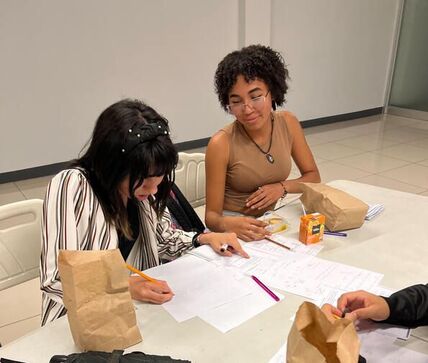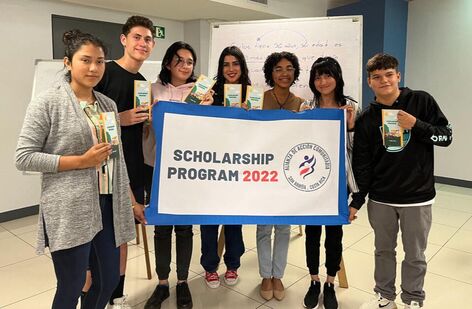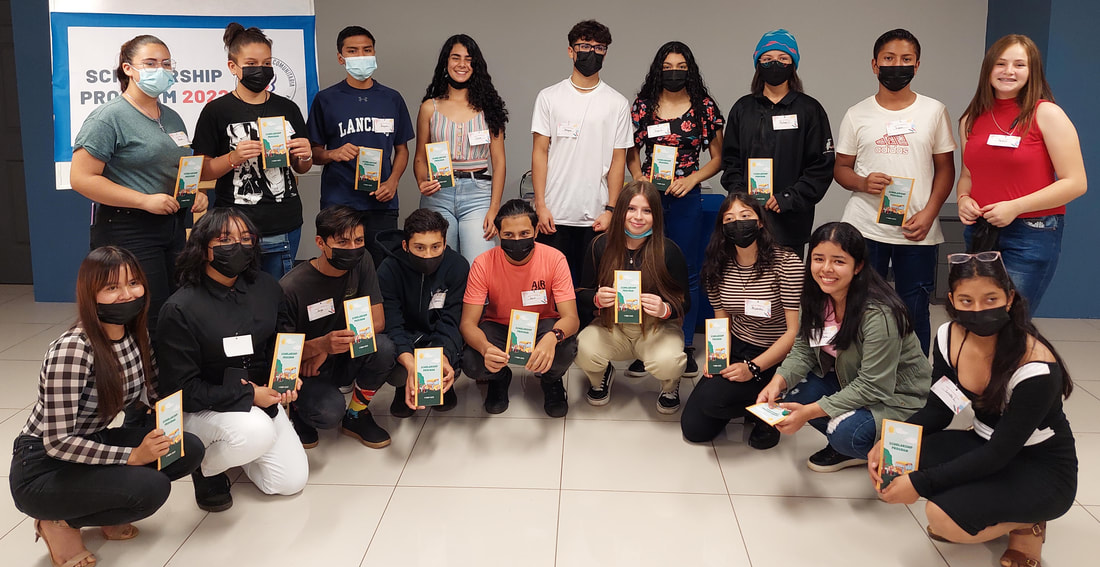
Math Exam Review Initiative
The last 4 years of disrupted instruction (teacher strikes, Covid) created a learning gap for students in our CAA’s Scholarship Program, so we organized six days (12 hours) of special math instruction by a university instructor (civil engineer) to refresh our students’ recollection of the math principles needed for the upcoming university exams. Education Committee members sat in on each of the classes, and it appears that a good proportion of our students were at a loss on the topics and concepts being covered.
The six math prep sessions wrapped up on Friday afternoon, July 15. Our students, and apparently most students in Costa Rica, score poorly on the math portion of the university entrance exams compared to the other topics.
The last 4 years of disrupted instruction (teacher strikes, Covid) created a learning gap for students in our CAA’s Scholarship Program, so we organized six days (12 hours) of special math instruction by a university instructor (civil engineer) to refresh our students’ recollection of the math principles needed for the upcoming university exams. Education Committee members sat in on each of the classes, and it appears that a good proportion of our students were at a loss on the topics and concepts being covered.
The six math prep sessions wrapped up on Friday afternoon, July 15. Our students, and apparently most students in Costa Rica, score poorly on the math portion of the university entrance exams compared to the other topics.

What can realistically be expected from this 12-hour, six session math review class? Perhaps it will help refresh our student’s recall of what they were taught over their five years in Colegio. We sincerely hope it’s not too little, too late.
The math deficiencies can be overcome with focused study/remedial work, but it can take longer than necessary for some students to complete their university degrees. In turn, these graduation-degree delays reduce the through-put of students into these STEM disciplines at the public universities and limits the number of available public university admission slots. Private high school graduates fare much better than public high school graduates in this competition for a more limited number of public university slots.
It may take a much broader restructuring of high school learning, in a number of important disciplines, to make a significant difference in math outcomes for first-year university students.
The math deficiencies can be overcome with focused study/remedial work, but it can take longer than necessary for some students to complete their university degrees. In turn, these graduation-degree delays reduce the through-put of students into these STEM disciplines at the public universities and limits the number of available public university admission slots. Private high school graduates fare much better than public high school graduates in this competition for a more limited number of public university slots.
It may take a much broader restructuring of high school learning, in a number of important disciplines, to make a significant difference in math outcomes for first-year university students.


 RSS Feed
RSS Feed